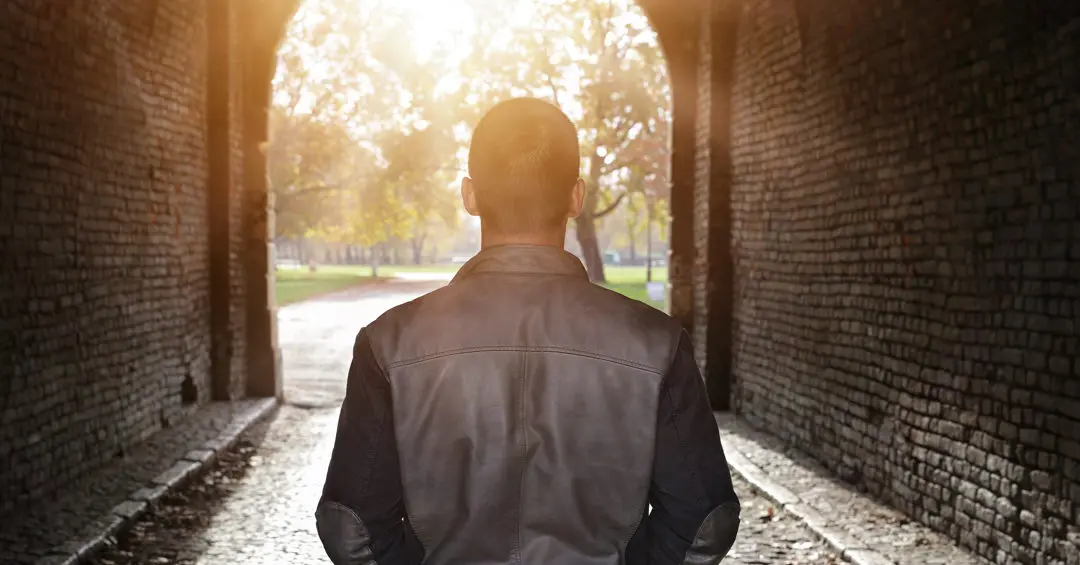A scientific survey found that approximately 38% of people with a mood disorder used drugs to self-medicate. Also, the study found that 34.2% of individuals suffering from a substance use disorder and mood disorder self-medicated with drugs.
A large chunk of individuals suffering from a substance use disorder in Los Angeles self-medicate with drugs to numb emotional pain. Others may use it to reduce physical pain. The fact is that addiction is a complex disorder that has nothing to do with a person’s morals.
Knowing how to cope with emotional pain isn’t easy to figure out. It becomes especially complicated when a person has a dual diagnosis. A dual diagnosis, also known as a co-occurring disorder or comorbidity, is when a person suffers from a substance use disorder and a mental illness. Pain management for recovering addicts starts with a positive mindset and the right sober living program in Los Angeles.
Sober Living in LA Shows How To Cope With Emotional Pain
Emotional pain can stem from grief, trauma, or mental illness. It’s also known as psychological pain. Those suffering from a mental illness and substance use disorder in Los Angeles, California need to heal both wounds at the same time. Delaying treatment can make both worse.
Benefits of sober living in LA include:
- Constant peer support
- A team of medical professionals to help heal and uncover emotional trauma
- Reduces the chance of relapse
- Individuals are surrounded by peers working towards the same goal
- Help is there around-the-clock
- Helps people maintain a schedule
- Individuals can maintain their responsibilities without it affecting addiction recovery
- A tranquil setting aids recovery
Sober living programs in Los Angeles give individuals the time they need to uncover the root of their emotional pain and recover at the same time. According to the National Institute on Drug Abuse (NIDA), around half of the people suffering from a substance use disorder also suffer from a mental illness. Sober living removes relapse triggers from the scenario which can set back addiction recovery.
9 Tips on How to Cope With Emotional Pain Positively
1. Exercise Radical Self-Love
Radical self-love is more than bubble baths and face masks. While this can be a part of self-love, the main pillar it stands on is being kind to yourself. It’s much easier to be mean to yourself when coping with emotional pain during addiction. But facing a painful situation with radical self-love becomes easier over time.
Instead of beating yourself up about a substance use disorder, think kind thoughts. Everyone makes mistakes, even if the mistake sets back progress during recovery. A good rule of thumb is thinking if you would say it to a friend. If you wouldn’t berate a friend for something then you shouldn’t say it to yourself either.
2. Eat a Healthy Diet
Diet affects mood. Contrary to what most people may believe, 95% of serotonin is produced in the gut. Since serotonin is a neurotransmitter it’s natural to think that it’s produced in the brain. However, Harvard’s health blog writes that good gut health indirectly impacts mood.
Serotonin has the role of:
- Regulating mood, happiness, and anxiety
- Controlling bowel movements
- Regulating the sleep cycle
- Helping blood clot
- Helping out with bone health
When a person has unbalanced serotonin levels they are more prone to depression and an overall bad mood. A healthy diet can be how to cope with emotional pain in a positive way. Eat a balanced diet full of fruit and leafy green vegetables to promote good gut bacteria.
3. Exercise Regularly
Exercise is a natural mood elevator. Thirty percent of people who exercise for at least 30 minutes a day report feeling happier than those who don’t. Thirty minutes a day is the minimum recommended amount of time for exercise each week in both the United States and Europe.

However, studies show that people who exercise for as little as 10 minutes a day feel happier. The same can be said about people that exercise once or twice a week. When you’re dealing with an intense amount of emotional or physical pain it’s tough to engage in physical activity. Anything from a brisk walk to yoga can help maintain a positive mindset during recovery.
Endorphins are brain chemicals that make a person feel happy and work as natural painkillers. Exercising releases endorphins. It can help with any kind of pain, whether it’s emotional or physical. That applies to a brisk walk, yoga, dancing, or any activity considered to be physical activity.
4. Volunteer Your Time
It may seem counterproductive to volunteer when struggling with emotional pain. Yet, volunteering even a small portion of time every month can make a person feel better. Making someone’s day better can make a person feel better. Sometimes volunteer opportunities can change a person’s life.
Homeless shelters usually need help with the programs they run. Try reaching out to a local homeless shelter to see if there’s any way to help. Emotional pain can involve self-hatred. Choosing to be a good person and help someone in need is a direct way to combat that feeling. Volunteering can take many forms: cleaning up the beach, helping at an animal shelter, or spending time with the elderly.
5. Reach Out for Help
Emotional pain is difficult to talk about. You might think it’s embarrassing to admit that you’re not alright. The fact is that your friends and family love you and want to be there for you. Of course, they may get worried about you, but that’s better to talk to someone than slip further into addiction.
A support network is a key to lasting addiction recovery. Talking about what is bothering you can get those thoughts out in the open to deal with them. Also, it can help you get another perspective on what is causing emotional pain. Friends and family are there for each other—that includes uncomfortably dark periods in a person’s life.
6. See a Therapist
No amount of exercise and eating healthy can compare to a good therapist. Plus, friends and family don’t have all the answers to show you how to cope with emotional pain during addiction recovery. That’s where therapy comes in.
Therapists can help recognize the underlying cause of distress and help patients cope with their emotional pain. Different types of therapy may help one person more than another:
- Cognitive-behavioral therapy (CBT)
- Dialectical behavior therapy (DBT)
- Family therapy
- Motivational enhancement therapy (MET)
- Rapid Resolution Therapy (RRT)
Therapy can help a person suffering from an alcohol or drug use disorder figure out why they cope with emotional pain in an unhealthy way. Also, it can help individuals maintain sobriety after sober living in Los Angeles or anywhere else.
7. Meditate

Meditation isn’t just for Buddhist monks and yoga instructors. It’s for people that struggle with controlling emotional pain. Harvard researchers did a study on people who joined a meditation course for 2 months. What they found was impressive.
Participants were able to maintain a meditative state during meditation and after. When they had a self-destructive, mean thought about themselves they were able to quickly stop thinking about it.
Those suffering from emotional pain during addiction recovery should try to practice meditating to stop the harmful cycle of negative thoughts. While negative thoughts may happen, meditating gives people the tools to disengage them.
8. Avoid Relapse Triggers
Does one friend encourage you to drink? Does a family member constantly put you down and make you feel worse about yourself? This could be a trigger that makes it easier to slip back into addiction. During and after addiction treatment, avoid people as well as places that make it harder to maintain sobriety.
Bars, raves, clubs, and drunken parties won’t help you stay sober. That’s not to say avoid every single party where someone might be drinking or doing drugs. But it’s worth saying avoid places where everyone is drinking and doing drugs.
Relapse happens to the majority of recovering addicts. Being mindful of what triggers the urge to drink and do drugs can help avoid relapsing plus the emotional pain that comes with it.
9. Be Mindful of Your Mood
Take a mental note if you notice you’re having more emotional pain than usual. It’s easy to ignore the signs of worsening emotional pain. Depression doesn’t happen instantly, unless it’s part of a larger condition, like bipolar disorder. Maintaining emotional health is crucial to keeping depression and anxiety at bay.
Be mindful of when every day is filled with negative emotion. That’s alright if it happens. But it’s not alright to do nothing about it. Reach out to your support network, talk to a therapist, exercise more, or add a bit of meditation into an everyday routine. Do things that help relieve emotional pain and keep an eye on mental health. Keeping a journal can help keep track of moods to make sure they stay stable.
Let Us Show You How To Cope With Emotional Pain During Addiction Recovery
Self-help books and friends don’t know how to cope with emotional pain in a way that’s right for you. Casa Neuvo Vida offers personalized plans and sober living programs in Los Angeles, California to help maintain a positive mindset during recovery.
Addiction won’t get better if there is unresolved emotional trauma. Let our highly-trained team show you or a loved one that there is a healthy way to cope with painful emotions. Contact us now to get started.
References:
- https://www.ncbi.nlm.nih.gov/pmc/articles/PMC4151244/#:~:text=Incident%20Disorders,-Incident%20drug%20abuse&text=Among%20individuals%20with%20a%20mood,reported%20self%2Dmedication%20with%20drugs
- https://www.drugabuse.gov/publications/research-reports/common-comorbidities-substance-use-disorders/part-1-connection-between-substance-use-disorders-mental-illness
- https://www.health.harvard.edu/blog/nutritional-psychiatry-your-brain-on-food-201511168626
- https://www.hormone.org/your-health-and-hormones/glands-and-hormones-a-to-z/hormones/serotonin
- https://www.nytimes.com/2018/05/02/well/move/even-a-little-exercise-might-make-us-happier.html
- https://www.health.harvard.edu/staying-healthy/exercising-to-relax

